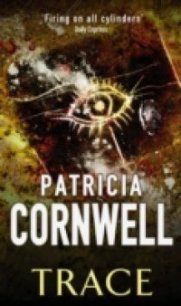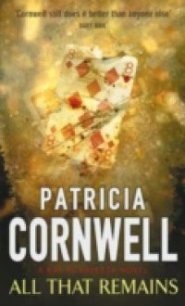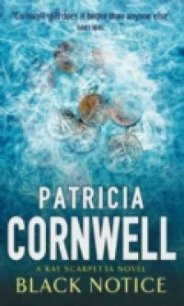The Last Precinct - Cornwell Patricia (лучшие книги читать онлайн TXT) 📗
"Guess he could have AIDS." This is foremost on Detective Stanfield's mind.
"We'll do an HIV on him," I reply.
Stanfield backs up another step as I remove the triangular-shaped breastplate of ribs. This a stage cue for Laura Turkel, on loan to us from the graves registration unit at the Fort Lee Army Base in Petersburg. She is so attentive and officious and almost salutes me when she suddenly appears at the end of the table. Turk, as everyone knows her, always refers to me as "Chief." I suppose for her Chief is a rank and doctor isn't.
"Ready for me to open up the skull, Chief?" Her question is an announcement that requires no answer. Turk is like a lot of the military women we get in here_tough, eager, quick to eclipse the men, who often, truthfully, are the squeamish ones. 'That lady Dr. Chong's working on," Turk says as she plugs the Stryker saw into the overhead cord reel, "she's got a living will and even wrote her own obituary. Got all her insurance papers in order, everything. Put 'em all in a binder and left it and her wedding band on the kitchen table before she laid herself down on the blanket and shot herself in the head. Can you imagine? Really, really sad."
"It's very sad." The organs are a shimmering bloc as I lift them out en masse and set them on a cutting board. "If you're going to be in here, you really should cover up." I direct this at Stanfield. "Did anybody show you where things are in the locker room?"
He blankly stares at the cuffs of my blood-soaked sleeves, at the blood splashed on the front of my gown. "Ma'am, if you don't mind, I'd like to go over what I got," he says. "If we could maybe sit down for a minute? Then I need to head on back before the weather gets any worse. Pretty soon, you're gonna need Santa's sleigh to get anywhere."
Turk picks up a scalpel and makes an incision around the back of the head, ear to ear. She reflects back the scalp and pulls it forward, and the face goes slack, collapsing into tragic protest before it is inside out like a folded-down sock. The exposed dome of the skull glistens pristinely white, and I take a good look at it. No hematomas. No indentations or fractures. The whir of the electric saw sounds like a hybrid of a table saw and a dentist's drill as I pull off my gloves and drop them in a red biohazard trash can. I motion Stanfield to follow me to the long countertop that runs the length of the wall opposite the autopsy stations. We pull out chairs.
"I gotta be honest with you, ma'am," Stanfield begins with a slow, negative shake of his head. "We don't got a clue where to start on this one. All I can tell you right now is this man"_ he indicates the body on the table_"checked into The Fort James Motel and Camp Ground yesterday at three P.M."
"Where exactly is The Fort James Motel and Camp Ground?"
"On Route Five West, no more than ten minutes from William and Mary."
"You talked to the clerk at this motel, The Fort James Motel?"
"The lady in the office, yes ma'am, I did." He opens a large manila envelope and scoops out a handful of Polaroid photographs. "Her name's Bev Kiffin." He spells it for me, slipping reading glasses out of an inner jacket pocket, hands trembling slightly as he flips through a notepad. "She said the young man come in and said he wants the sixteen-oh-seven special."
"I'm sorry. The what?" I rest my ballpoint pen on the notes I am making.
"One hundred and sixty dollars and seventy cents Monday through Friday. That's five nights. Sixteen-oh-seven. The usual rate's forty-six dollars a night, which is mighty high for a place like that, you ask me. But you know tourist traps."
"Sixteen-oh-seven? As in the date Jamestown was founded?" It seems odd to hear a reference to Jamestown. I just mentioned Jamestown to Anna last night when I was talking about Benton.
Stanfield nods deeply. "As in Jamestown. Sixteen-oh-seven. That's the business rate, or so they call it. The amount for the business week, and let me add, ma'am, this isn't a very nice motel, not at all, no ma'am. A fleabag is what I would call it."
"Does it have a history of crime?"
"Oh no. No ma'am. No history of crime I'm aware of, not at all."
"Just seedy."
"Just seedy." He nods deeply.
Detective Stanfield has a distinct way of speaking with emphasis, as if he is used to teaching a slow child who needs important words repeated or emphasized. He neatly arranges photographs in a lineup on the countertop and I look at them. "You took these?" I assume.
"Yes ma'am, I sure did."
Like him, what he has captured on film is emphatic and to the point: the motel door with the number 14 on it, the view of the room through the open doorway, the scorched bed, the smoke damage to the curtains and walls. There is a single chest of drawers and an area to hang clothes that is nothing more than a rod in a recessed area just inside the door. I note that the mattress on the bed has remnants of a cover and white sheets but nothing else. I ask Stanfield if perhaps he submitted the bedcovers to the labs to test for accelerants. He replies that there was nothing on the bed, nothing to submit except burned areas of the mattress, which he placed inside a tightly sealed aluminum paint can_"according to procedure" are his exact words, the words of someone very new at detective work. But he does agree it is odd that the bedcovers were missing.
"They were on the bed when he checked in?" I ask.
"Mrs. Kiffin says she didn't accompany him to the room, but is sure the bed was properly made because she cleaned it up herself after the last guest checked out several days ago," he replies, so that is good. At least he thought to ask her about it.
"What about luggage?" I ask next. "Did the victim have luggage?"
"Didn't find any luggage."
"And the fire department got there when?"
"They were called at five-twenty-two P.M."
"Who called?" I am making notes.
"Someone anonymous driving by. Saw smoke and called from his car phone. This time of year, the motel doesn't do a lot of business, according to Mrs. Kiffin. She says about three fourths of the rooms was empty yesterday, being as how it's almost Christmas and the weather and all the rest. You can see by looking at the bed, the fire wasn't going nowhere." He touches several of the photographs with a thick, rough finger. "It pretty much had put itself out by the time the fire trucks got there. All they needed was fire extinguishers, didn't need to hose things down, which is a good thing for us. This here's his clothes."
He shows me a photograph of a dark pile of clothing on the floor just beyond the open bathroom door. I make out pants, a T-shirt, a jacket and shoes. Next I look at photographs taken inside the bathroom. On the sink is a coppertone plastic ice bucket, plastic glasses covered with cellophane and a small bar of soap still in its wrapper. Stanfield fishes in a pocket for a small knife, opens a blade and slits the evidence tape sealing the paper bag he brought with him. "His clothes," he explains. "Or at least I assume they're his."
"Hold on," I tell him. I get up and cover a gurney with a clean sheet, and put on fresh gloves and ask him if a wallet or any other personal effects were recovered. He tells me no. I smell urine as I pull out clothing from the bag, careful that if any trace evidence is dislodged, it will fall on the sheet. I examine black bikini briefs and black Giorgio Armani cashmere trousers, both soaked with urine.
"He wet his pants," I tell Stanfield.
He just shakes his head and shrugs, and doubt crosses his eyes_maybe doubt tainted by fear. None of this is making much sense, but the feeling I have is clear. This man may have checked in alone, but at some point, another person entered the picture, and I am wondering if the victim lost control of his bladder because he was terrified. "Does the lady in the office, Mrs. Kiffin, remember him dressed like this when he checked in?" I ask as I pull pockets inside out to see if there is anything in them. There isn't.



